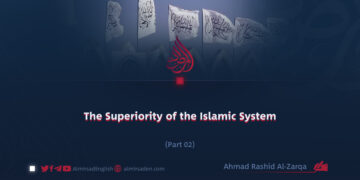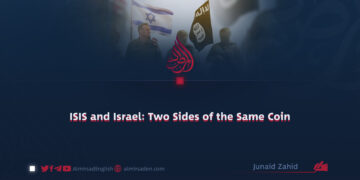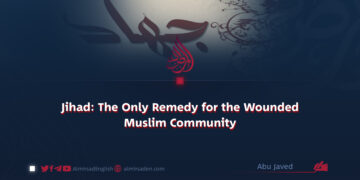Part 13
Written by: Ehsan Arab
Facilitating the Occupation of Islamic Countries
In recent decades, Western powers—driven by ambitions to invade Muslim lands and exploit their material and spiritual wealth—have consistently employed a calculated strategy to pave the way for occupation: they first facilitate the emergence of the detested Khawarij in the target region, then exploit their presence as a pretext for military intervention, thereby perpetuating oppression and widespread atrocities.
Indeed, whenever non-Muslim nations planned military incursions into Islamic countries, they first cultivated the abhorrent seeds of the Khawarij within the area. Upon empowering these elements, they utilized their presence as a justifiable reason to initiate offensives and perpetrate further transgressions.
Wherever the Daeshi Khawarij have established a foothold in any part of the Islamic world, their Western patrons have swiftly intervened under the guise of combating Daesh. These regions have been militarized, foreign agendas enforced, and local political landscapes reshaped to align with Western strategic interests.
These interventions have not been limited to direct military action. They have involved a broad spectrum of violations—from mass killings and systematic destruction to assaults on the honor and dignity of Muslims, from the looting of natural resources to deliberate attacks on religious beliefs and social structures. What has been framed as a global campaign against extremism has, in practice, become a war on Muslim sovereignty, unity, and faith.
The result of this calculated policy has been the transformation of many Islamic nations into arenas of proxy warfare. These wars, falsely portrayed as efforts to counter terrorism, have in fact served to fragment states, erode religious values, and strip Muslim societies of their assets and independence.
In the subsequent sections of this discourse, we shall briefly highlight several countries where the Daesh Khawarij took root, only to pave the way for subsequent Western occupation:
Iraq
Although Iraq was initially invaded by the United States in 2003, the emergence of Daesh and the fall of Mosul in 2014 gave rise to a renewed military campaign. Under the pretense of defeating Daesh, the U.S. and its allies re-entered the country and established military bases across key regions—further entrenching their influence.
Syria
Amidst the advancements of Syrian revolutionaries in 2011 and the perceived impending downfall of the Assad regime, the emergence of Khawarij discord provided Western powers—primarily the United States, France, and Britain—an opportunity for direct military engagement within the country.
Libya
Libya, too, fell prey to the machinations of the Daeshi Khawarij. When the group raised its so-called caliphate’s flag in the city of Sirte, it created yet another opening for foreign intervention. The already war-torn and destabilized country was plunged deeper into chaos as foreign forces imposed their will, and the Libyan people suffered further under the shadow of occupation.
This strategy is not accidental—it is deliberate. The Khawarij are not a threat to the West, but a tool in its hands.
To be continued…



















































